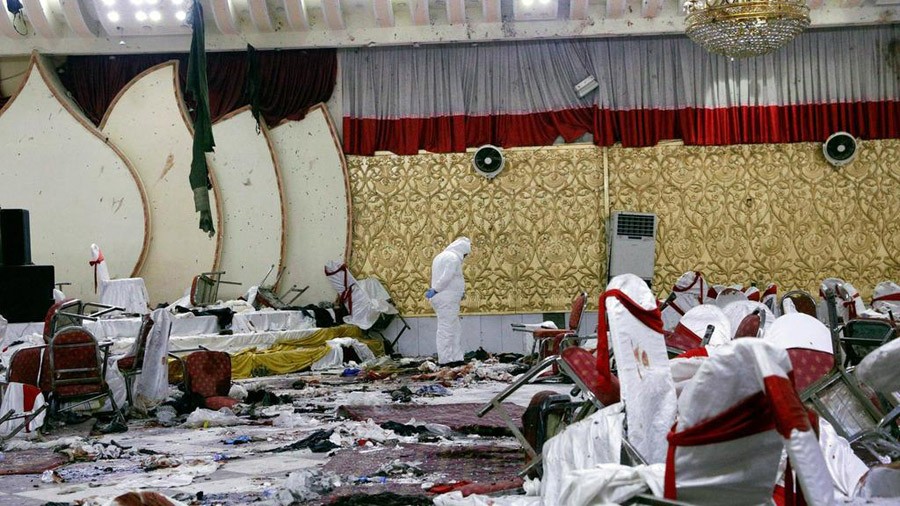
Kashmir may be the game-changer for securing the American exit from Afghanistan. The question now is whether Trump is ready to play ball

The targeted killing of a man with no reported links to the Afghan Taliban may impact peace efforts between that group and the US. Pakistan, too, may feel the brunt.
On August 16, the imam of the Khair-Ul-Madaris mosque, in the town of Kuchlak (Quetta district) was killed in a bomb blast. That this happened just 112 km from the Afghan border town of Spin Boldak cannot be ignored. Nor, too, can the fact that Hafiz Ahmadullah was the brother of Afghan Taliban chief Haibatullah Akhundzada. Pakistan has long been accused of turning a blind eye to the presence of the Quetta Shura within its borders. This is something that Islamabad has never conceded.
There could be two explanations for this assassination. First, a reprisal for ongoing Taliban brutality in Afghanistan. Second, this could be the work of rival Taliban factions. Whatever the case, violence continues.
On August 19, the ISIS claimed responsibility for the Kabul wedding suicide attack which targeted the Shia Hazara community; leaving 60 dead and hundreds injured. The terror outfit is rabidly anti-Shia. It has also targeted other Muslim minority groups in its erstwhile strongholds of Iraq and Syria. Yet this latest bloodshed was likely intended as a signal to the US. A bloody reminder that the Taliban are not the only powerful stakeholder when it comes to determining the future direction of the country. While also cautioning the Taliban that there will be no easy winners in the power vacuum that may come in the wake of a US troop withdrawal. Thus, when taken together, the wedding attack and the killing of Haibatullah Akhundzada’s brother look reasonably timed to sabotage a negotiated peace.
The Taliban, for their part, might well suspect the involvement of the Kabul government in the assassination. Thereby giving the Taliban a reason to intensify attacks on the Ashraf Ghani regime; especially in the run-up to September’s presidential election. Be that as it may, the fact that the ISIS targeted a non-combatant citizen underscores the failure of the Taliban in preventing Afghanistan from becoming a staging post for international jihadists. That this features as one of the four elements of the peace process complicates matters further.
Nevertheless, the fact that the Taliban have not downed arms raises questions as to actual progress on the reconciliation front. After all, as recently as August 7, a Taliban car bomb killed 14 people and wounded 144 in Kabul. Most of the deceased were non-combatants. Yet a few weeks later, the Taliban denied responsibility; with spokesperson Suhail Shaheen telling CBN News that it was unclear who was behind the attack.
Whether or not the Taliban are still ideologically aligned to Al Qaeda remains to be seen. While Pakistan holds the key to peace -- it also has the power to scupper talks. This may be seen from its changing position against the backdrop of India’s unilateral revoking of Kashmir’s special status. Indeed, in an interview with The New York Times, Pakistan’s ambassador to Washington suggested that his country may redeploy troops from the Af-Pak border towards India.
If this happens, a spike in Taliban bloodshed can be expected. Pakistan has always preferred and welcomed third party mediation in the resolution of its disputes with India. It may now not cooperate in the Afghan peace process if the US chooses not to pressure the Modi regime towards bilateral talks on Kashmir.
Washington is cognisant of the pivotal role that Islamabad has been playing in ongoing peace efforts; with President Trump talking on the phone to both Narendra Modi and Imran Khan, urging both to defuse escalating regional tensions. From Pakistan’s perspective, this is a welcome development.
Thus Kashmir may be the game-changer for securing the American exit from Afghanistan. The question now is whether Trump is ready to play ball.